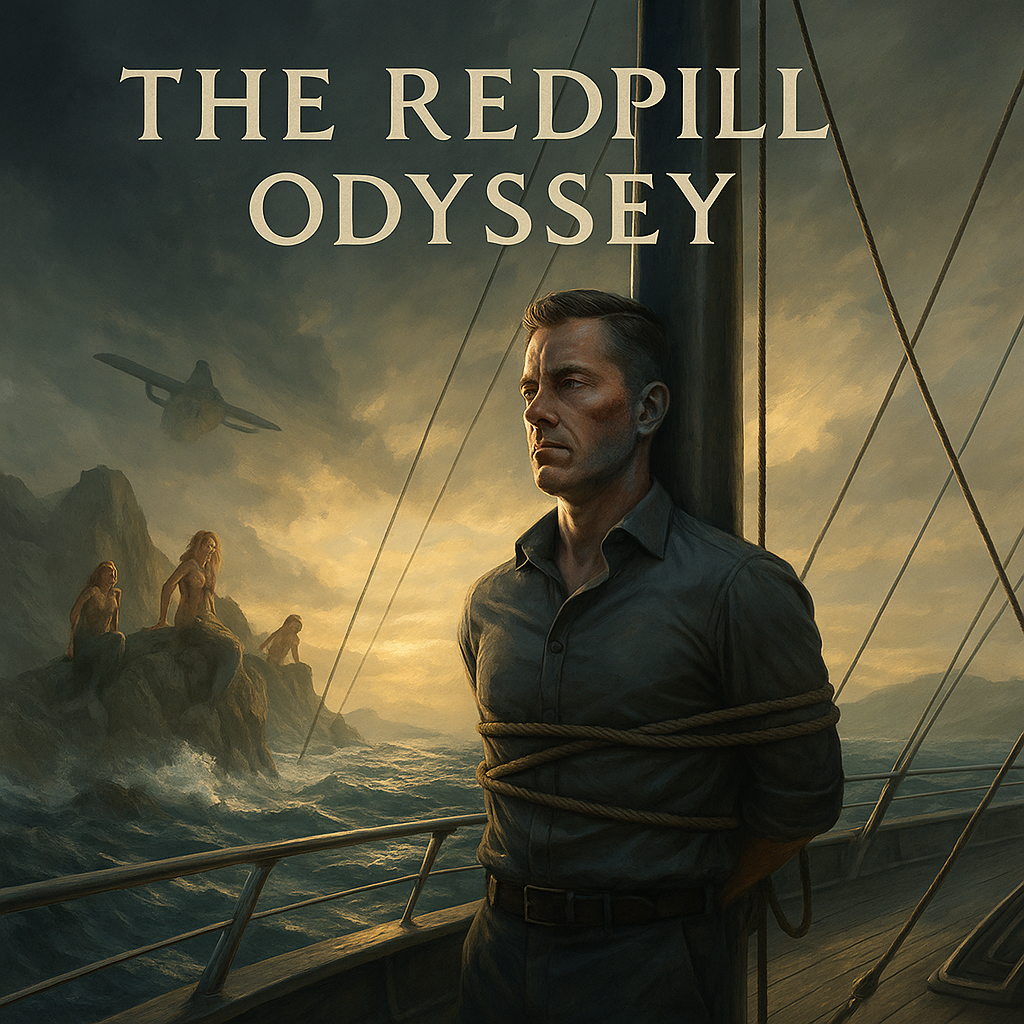
Before there was “Game,” before there was hypergamy, before there was your favorite manosphere podcast on 2x speed—there was Odysseus. King of Ithaca. War hero. Sovereign male prototype. And whether Homer meant to or not, The Odyssey reads like a blueprint for navigating the feminine labyrinth and reclaiming masculine agency.
Let’s break it down.
Odysseus spends ten years fighting a pointless war because some simp named Paris thought kidnapping a 10 in Sparta was a good idea. Then, instead of sailing straight home, he gets sidetracked for another ten years by a parade of distractions that would make any MGTOW monk raise an eyebrow.
First, there’s Circe—a literal witch who turns men into pigs (not even a metaphor, Homer went full based). Odysseus? He handles it. But not before he “stays” with her for a year. Translation: even the strongest man gets seduced when he forgets the mission.
Then comes Calypso, the immortal nymph who offers him eternal pleasure and zero responsibility. He stays seven years—a reminder that the soft prison of comfort is often more dangerous than any battlefield. It takes divine intervention to get him moving again. The gods had to literally remind him he had a purpose. Sound familiar?
And of course—The Sirens. The original thirst traps. Their voices promise glory, knowledge, pleasure. Every man who listens ends up dead on the rocks. Odysseus? He ties himself to the mast. He doesn’t plug his ears like the crew. He wants to hear the song—but not be consumed by it. That’s the ultimate redpill move: resist the urge to dive headfirst into seductive chaos. Observe. Learn. But never lose control.
Meanwhile, back in Ithaca, Penelope is playing the eternal “maybe” game. She’s keeping her suitors orbiting—classic long-term strategy—while weaving and unweaving the same damn tapestry. Loyalty? Perhaps. But also strategic manipulation masked as virtue. Redpill lesson: “not choosing” is a choice.
And what does Odysseus return to? A palace full of betas trying to sleep in his bed and eat his food. What does he do? He cleans house. Not with a divorce attorney, but with a bow and a body count.
This isn’t a story about romance—it’s about sovereignty. It’s about a man who gets lost, distracted, manipulated, seduced—but who ultimately remembers who the hell he is.
The Odyssey isn’t a love story. It’s a cautionary tale. Every temptation, every delay, every seductive feminine archetype is a test—and the only way home is through personal sovereignty, ruthless clarity, and the rejection of comfort disguised as paradise.
So what’s the real lesson?
Don’t get trapped in someone else’s war. Don’t stay too long in the arms of a witch. Don’t believe that waiting for you is the same as choosing you. And never forget: the journey ends not with approval, but with reclaiming your throne.
Odysseus didn’t simp. He strategized.
Be like Odysseus. But skip the decade with the nymph.